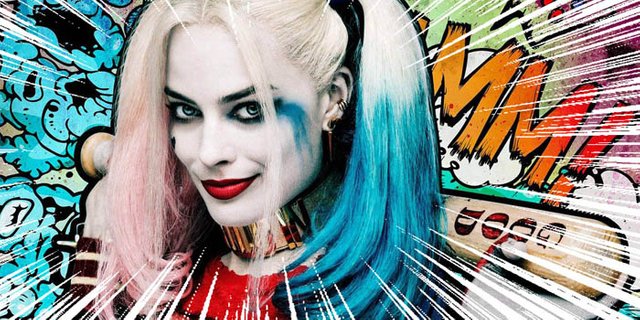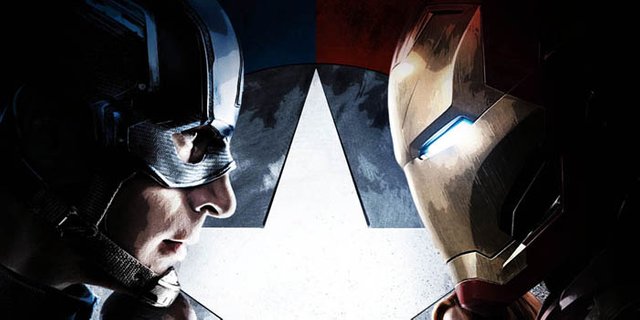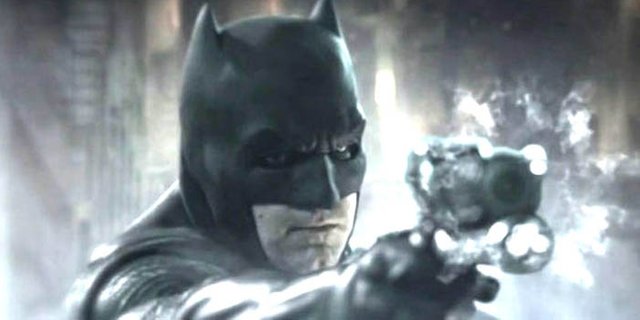Suicide Squad : Why DC Vs Marvel is really DC Vs DC

With the build-up to the release of the eagerly-anticipated Suicide Squad last week, it looked like the movie could do no wrong. With a cast including Will Smith, Jared Leto and Margot Robbie, and an impeccably-planned advertising campaign, success was virtually guaranteed. Why, then, did terrible reviews start to seep out? What fatal mistakes could director David Ayer have made, especially given the credibility he achieved with his well-received World War II drama Fury, and the novel idea of the bad guys becoming the good guys in Suicide Squad?
A lot of comparisons are made between the cinematic universes of DC Comics and Marvel; understandably so, given that both are ostensibly universes of superheroes who team up to fight for the greater good. What a lot of people miss though, is that The Avengers are not The Justice League. Billionaire Bruce Wayne and billionaire Tony Stark are two completely different characters, the former a dark avenger of evil, and the other, a childishly curious inventor. But with the media constantly looking for their ‘Vs’ moment, a yin to every yang, unfortunately DC and Marvel are constantly pitted against one another, often at times where no similarities are obvious to long-standing fans.
The Iron Man movies are fun and light-hearted, full of comedy moments, while the Batman movies of Tim Burton and Christopher Nolan were generally dark, serious affairs. Man Of Steel was presumably written as such a dark, more realistic take on what humans would do when faced with an alien with unique powers, as a direct opposite of the tone of Marvel’s more fun movies. The last thing Warner Bros wanted was to be slotted into the same light-hearted superhero category as Disney/Marvel’s movies, and in doing so, have alienated themselves from much of the mainstream audience.
In July of 2013, when Warner Bros announced that their sequel to that year’s Man Of Steel was going to be a team-up of their two most recognisable characters, Batman and Superman, the reaction was incredible. Who couldn’t be excited by such a premise? Fresh from a hit trilogy of Christopher Nolan-directed Dark Knight movies, Batman was the superhero of the moment, but the negativity was to start early on in the production.
The announcement of Ben Affleck as the Caped Crusader sent shockwaves through the comic book and movie industry, as fans feared his appearance would turn the movie into another ‘Daredevil’, the much-derided 2003 Marvel movie, in which Affleck (admittedly through bad direction more than anything else) butchered one of Marvel’s most popular characters.
It didn’t stop there. With the announcement that the movie’s subtitle would be ‘Dawn Of Justice’ and that two Justice League movies would follow shortly after Batman V Superman, changes had to be made to Batman V Superman to incorporate all the ideas and teasers that would enable the movie to act as a prequel, as much as a standalone movie. The release date, originally May 2015, had to be pushed back to May 2016. Then, so as to not have the movie compete with Marvel’s Captain America : Civil War, they changed the date again, to March 2016.

On its release, Batman V Superman was slated. Inconsistencies in the story, with some aspects of it just not making sense, and its lack of light-hearted moments all contributed to what Warner Bros must have perceived as an awful box office performance, although in reality, it grossed a very respectable $800m worldwide. When 2015’s Disney/Lucasfilm Star Wars : The Force Awakens took in over $2bn, Batman V Superman should have been making similar numbers, given that it was the first time the titular characters had appeared in a movie together, and the movie also marked Wonder Woman’s first big-screen appearance. But the critics, and later, the fans, were just not impressed. An extended version of the movie was rumoured immediately following the film’s cinematic release, with an extra half-hour of footage that would make sense of some of the plot holes, and once this was released on Blu-Ray and DVD, the general response of the audience was that this director’s cut was the version that should have made it to the cinemas. Despite being a lengthy 3 hours, it told a much more coherent story, and had Warner Bros trusted in Zack Snyder’s vision completely from the get-go, this should have been the version hitting the cinemas, thus avoiding all the backlash.
The comparisons to Marvel’s movies were inevitable at this point: Earlier in the year, Fox’s Deadpool movie (while not technically part of the Avengers Marvel Cinematic Universe) raked in an enormous $760m, despite having a miniscule $58m budget, an R-rating, and a lead character that no one in the mainstream had ever heard of before. Captain America: Civil War topped a billion dollars. So a lot was riding on the DC Cinematic Universe’s next foray into the world of superheroes, or more accurately, supervillains, with Suicide Squad.
It looked good at first, from the Bohemian Rhapsody-driven trailer to the sneak peeks at Jared Leto’s maniacal Joker, Will Smith playing wise-cracking Deadshot, and flavour-of-the-moment Margot Robbie playing fan-favourite character Harley Quinn. Suicide Squad was everywhere. And then the reviews started coming in. As a DC Comics fan, I didn’t want to believe what I was reading prior to Suicide Squad’s release. I’d heard the conspiracy theories that Marvel/Disney had paid a bunch of journalists to write bad reviews for Batman V Superman, and I feared a similar hatchet job could be being done to Suicide Squad. But, as with Batman V Superman, the journalists didn’t have to be bribed to say bad things about either of these two movies. There were so many flaws to both movies that the reviews were fully justified.
For some reason, The Joker, arguably DC Comics best villain, has been re-written as a gangster, one who dotes on girlfriend Harley, a complete one-eighty on the true nature of their relationship in the comic books, which revolves around their abusive relationship and how she loves him, while he merely tolerates her presence. And Harley Quinn, arguably intended as the star of Suicide Squad, was just plain awful. Her accent went from Australian, to a general accent-less American, to a southern hick, often within the same scene. And despite how they tried to sexualise her character with skimpy hotpants, she came across as nothing short of annoying.
A well-put-together opening 20 minutes of the movie quickly descends into a Ghostbusters-esque tale of a Cara Delevingne’s Enchantress bringing her dead brother back to life and opening some sort of whirling portal of litter in the sky, before taking the Suicide Squad on in hand-to-hand combat, despite her ability to easily dispatch them with her witchy tentacles. The plot just wasn’t there. Such an interesting idea of the bad guys becoming the good guys: wasted. As with all bad movies, there were moments of quality: Will Smith shone as Deadshot, providing much of the comedy and also the emotional weight of the movie, and Jai Courtney’s Boomerang was surprisingly good too.
But what it boils down to is this: DC is not Marvel. It’s perhaps unfortunate that the two are constantly compared, given that all they have in common is that they both make superhero movies. Marvel has been in this game a lot longer. Since 2008 they’ve been churning out hit after hit, impossibly hitting their stride in their first movie, Iron Man, and not really having any flops, although the Edward Norton-helmed Incredible Hulk doesn’t really stand the test of time. Three Captain America movies, three Iron Mans, two Thors, two Avengers, and even Guardians of the Galaxy and Ant-Man all managed to rake in over half a billion dollars each for the Disney movie machine.
Could DC learn something from Marvel about how to make successful movies? Sure. But rather than imitate, they need to find a way to innovate: To take their legendary characters and do something with them that we haven’t seen before. In 2017 Justice League is going to be compared with The Avengers, it’s unavoidable, and given that The Avengers raked in a huge $1.5bn worldwide, that’s a pretty big set of shoes to try to fill. They need to focus on quality. They need to let their directors have a bit more freedom with the characters. And perhaps, they need to take the characters a little less seriously. The only competition DC really has at the moment is itself, and the bad choices that the powers-that-be are making about the direction of these movies and their characters. We can cross our fingers for Patty Jenkins’ Wonder Woman movie, but based on the trailer released at this year’s Comic-Con, I fear we’re going to be seeing more of the same: Lots of serious faces, lots of action without any real sense of danger, and not a great deal of fun. Unless Warner Bros can turn it around and prove me wrong, which I really hope they can. I grew up a DC Comics fan, and it breaks my heart to see what they’re doing to my favourite characters.

I have to admit though… Ben Affleck is awesome as Batman.